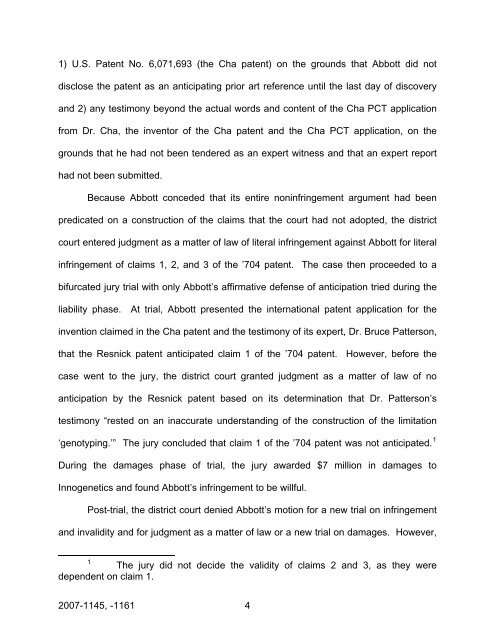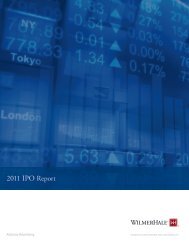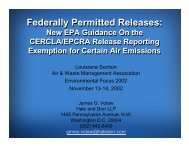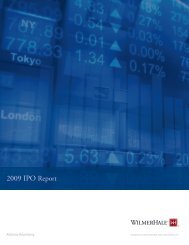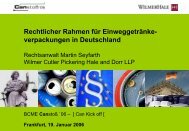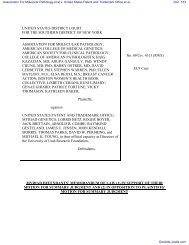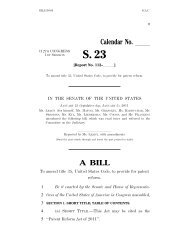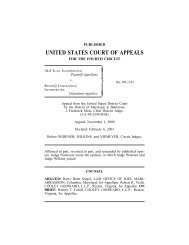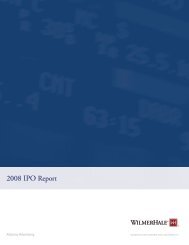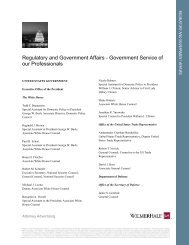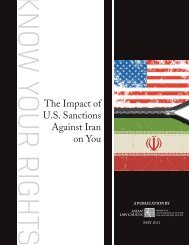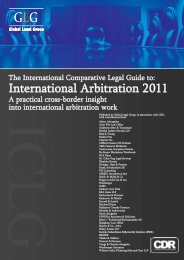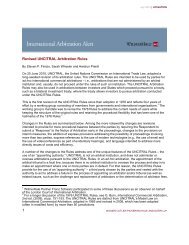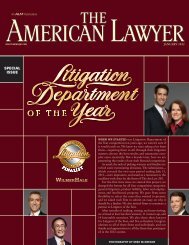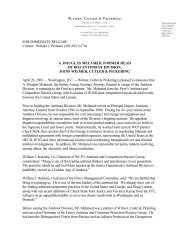Innogenetics, N.V. v. Abbott Laboratories - WilmerHale
Innogenetics, N.V. v. Abbott Laboratories - WilmerHale
Innogenetics, N.V. v. Abbott Laboratories - WilmerHale
Create successful ePaper yourself
Turn your PDF publications into a flip-book with our unique Google optimized e-Paper software.
1) U.S. Patent No. 6,071,693 (the Cha patent) on the grounds that <strong>Abbott</strong> did notdisclose the patent as an anticipating prior art reference until the last day of discoveryand 2) any testimony beyond the actual words and content of the Cha PCT applicationfrom Dr. Cha, the inventor of the Cha patent and the Cha PCT application, on thegrounds that he had not been tendered as an expert witness and that an expert reporthad not been submitted.Because <strong>Abbott</strong> conceded that its entire noninfringement argument had beenpredicated on a construction of the claims that the court had not adopted, the districtcourt entered judgment as a matter of law of literal infringement against <strong>Abbott</strong> for literalinfringement of claims 1, 2, and 3 of the ’704 patent. The case then proceeded to abifurcated jury trial with only <strong>Abbott</strong>’s affirmative defense of anticipation tried during theliability phase. At trial, <strong>Abbott</strong> presented the international patent application for theinvention claimed in the Cha patent and the testimony of its expert, Dr. Bruce Patterson,that the Resnick patent anticipated claim 1 of the ’704 patent. However, before thecase went to the jury, the district court granted judgment as a matter of law of noanticipation by the Resnick patent based on its determination that Dr. Patterson’stestimony “rested on an inaccurate understanding of the construction of the limitation‘genotyping.’” The jury concluded that claim 1 of the ’704 patent was not anticipated. 1During the damages phase of trial, the jury awarded $7 million in damages to<strong>Innogenetics</strong> and found <strong>Abbott</strong>’s infringement to be willful.Post-trial, the district court denied <strong>Abbott</strong>’s motion for a new trial on infringementand invalidity and for judgment as a matter of law or a new trial on damages. However,1The jury did not decide the validity of claims 2 and 3, as they weredependent on claim 1.2007-1145, -1161 4


